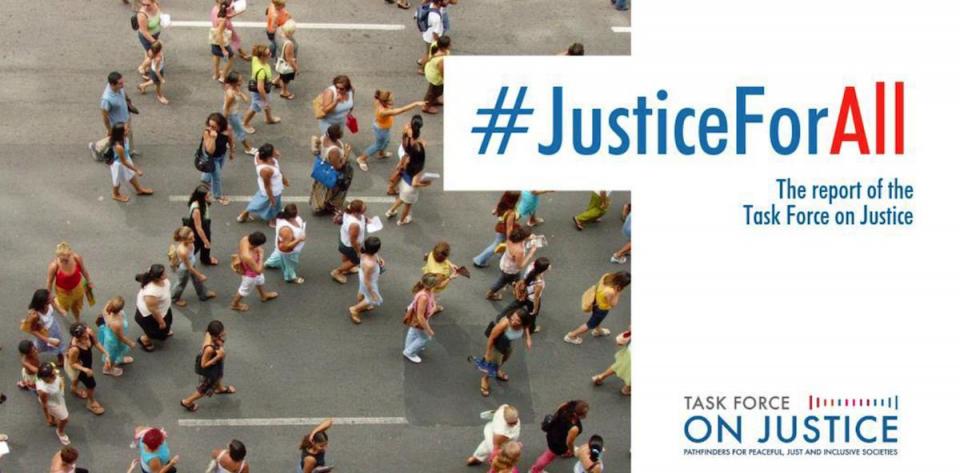- عربي
- 中文
- English
- Français
- Русский
- Español
Global report highlights urgent need to ensure children’s access to justice

SRSG Santos Pais welcomes today’s publication of the Justice for All report at the World Justice Forum in The Hague. The report sets out the challenges experienced by those seeking access to justice in all parts of the world, including child victims of violence. The report was developed by the Task Force on Justice - an initiative of the Pathfinders for Peaceful, Just and Inclusive Societies, a multi stakeholder partnership of which the Special Representative is a member.
"The promotion of child-friendly justice is a key priority for my mandate. Access to justice for children is not only a fundamental human right in itself; it is a vital prerequisite for the protection of all other rights, including children's right to freedom from violence," said SRSG Santos Pais.
The mandate of the Special Representative has consistently highlighted how ensuring access to justice is critical both to combatting violence against children and to realizing the vision of the 2030 Agenda for Sustainable Development.
“With the adoption of the 2030 Agenda, the international community included a distinct target to ensure equal access to justice for all, leaving no one behind. This means children too! As the Co-Chair of the Task Force on Justice, Hina Jilani, has stressed, children and other vulnerable groups are among those who face the hardest struggle in accessing the justice system and exercising their rights,” added SRSG Santos Pais.
The findings of Justice for All resonate strongly with the work of the SRSG’s mandate on access to justice. Indeed, countless children feel frightened to report incidents of violence they endure or to seek the care and support services they are entitled to. They may lack a birth certificate or other document recognizing their legal identity and as a result fail to enjoy the protection of the law. And more often than not, they may fail to understand what the law says and the safeguards it provides.
Drawing on the views and experiences of children themselves, SRSG Santos Pais has drawn attention to the specific challenges they face, such as inadequate legal protection for their rights; legal procedures that are poorly adapted to children’s needs; the lack of necessary training for professionals in this field; inaccessible or non-existent counselling, complaint and reporting mechanisms; and the fragmented nature of services offered to child victims of violence.
“Despite the many barriers encountered by children in trying to access justice, there are very good experiences we can build upon as we chart a course forward. The Barnahus (children’s house) model being promoted in a growing number of countries, is a meaningful example: with highly trained professionals, the Barnahus brings under the same roof representatives from relevant agencies, including justice, police, health and social workers, who provide a child-friendly environment within which children are interviewed, evidence is gathered, and care and treatment foreseen. With this approach, multiple interviews can be avoided, evidence is secured to fight impunity, and child victims are ensured the needed protection, care and support,” said SRSG Santos Pais.
“With the lessons learned from such experiences and from nearly thirty years of implementing the Convention on the Rights of the Child, States around the world are well placed to fulfil their commitments under the 2030 Agenda for Sustainable Development to accelerate progress in this field, living up to the promise not to leave anyone behind.”

